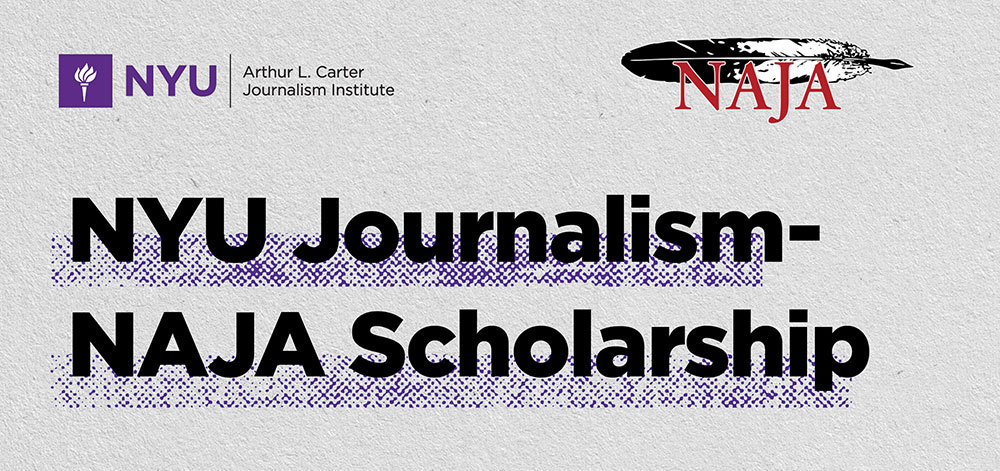
- Details
- By Native News Online Staff
The New York University Arthur L. Carter Journalism Institute is offering a new full-tuition scholarship to a Native American Journalism Association (NAJA) member admitted to one of the ten NYU journalism graduate programs in fall 2021.
The scholarship is worth more than $70,000.
The goal of the NYU Journalism-NAJA scholarship is to support a journalist who might not otherwise have the opportunity to earn a graduate journalism degree in one of the school’s top-level NYU graduate journalism programs.
Interested candidates only need to complete the regular NYU Journalism application.
Proof of NAJA membership must be submitted at the time of accepting the fellowship award. Applicants may join NAJA upon receiving the offer. Membership in NAJA is open to individuals of all racial backgrounds, and the scholarship is as well.
The deadline to apply is Feb. 10, 2021. Some flexibility is available with the deadline and interested candidates should contact NYU with any extension requests.
Learn more about the scholarship here.
More Stories Like This
Hanging a Red Dress for Christmas: MMIP, Native Higher Education, and Hope for a Better New YearNative Students Can Win $5,000 Scholarship, International Distribution in Pendleton Design Contest
American Indian College Fund Raises Alarm Over Plan to Shift Native Programs Away From the Dept. of Education
MacKenzie Scott Foundation Gives $5 Million Contribution to Little Priest Tribal College
Tribal Leaders Push Back on Dismantling of U.S. Department of Education
Help us defend tribal sovereignty.
At Native News Online, our mission is rooted in telling the stories that strengthen sovereignty and uplift Indigenous voices — not just at year’s end, but every single day.
Because of your generosity last year, we were able to keep our reporters on the ground in tribal communities, at national gatherings and in the halls of Congress — covering the issues that matter most to Indian Country: sovereignty, culture, education, health and economic opportunity.
That support sustained us through a tough year in 2025. Now, as we look to the year ahead, we need your help right now to ensure warrior journalism remains strong — reporting that defends tribal sovereignty, amplifies Native truth, and holds power accountable.
 The stakes couldn't be higher. Your support keeps Native voices heard, Native stories told and Native sovereignty defended.
The stakes couldn't be higher. Your support keeps Native voices heard, Native stories told and Native sovereignty defended.
Stand with Warrior Journalism today.
Levi Rickert (Potawatomi), Editor & Publisher

